Dealing With Heat In A Tuned Engine
It’s a universal fact that engines don’t like heat, this holds for both factory fitted as well as tuned engines. However, despite everyone knowing this, we often hear about tuned engines overheating and experiencing catastrophic problems and failures.
So, in this section, we'll get into the specifics of what causes this problem. Later, we discuss the problems associated with this issue and various solutions.
We strongly recommend that you should fit an oil temperature gauge if you've tuned your engine, as these more accurately reflect the engine temperatures compared to the common water temp readings.
Get a feel for what is the "normal range" then you can react sooner if you notice the car start to overheat and allow it to cool down before any engine damage occurs.
Why Do Tuned Engines Run Hotter?
Tuned engines produce more power than the factory fitted ones. This means that more combustion takes place in these engines.
Combustion is the process in which the air and fuel mixture is ignited by spark plugs and power is generated. However, a larger quantity of air and fuel mixture is burned when more power is required.
As combustion generates heat, so the amount of heat produced in a tuned engine is much more than that produced by a stock one.
You are, generally speaking, making bigger explosions within each cylinder and increasing the rate of these so it is logical there will be an increase in heat produced.
What Problems Can Cause Overheating?
If an engine is properly cooled, no matter how much power it is producing, it should not overheat.
This means that if an engine is running hot, there is a problem with it that must be addressed as soon as possible.
If the issue is not timely resolved it can lead to several major problems and thus necessitate extensive repairs costing substantial amounts of money.
Some of the problems which can cause this heating include but are not limited to:
- Inadequate Cooling System
- Blockage or restriction within the cooling system
- Problems within the engine
- Poorly vented engine bay
As mentioned above, the amount of heat produced by a tuned engine is much higher than a normal one so how do we address this and mitigate this problem.
This requires the use of a high-performance cooling system. The stock parts installed by the automaker are designed according to the vehicle’s factory fitted engine and its power.
This is why, when the performance figures are boosted, an inadequate cooling system is often the reason for the overheating of a tuned car.
Almost all car tuning experts suggest a proper cooling system to go along with the tuned engine.
However, most newbies that take the upgrades as DIY projects tend to forget the importance of an upgraded cooling system and often pay the price.
- Broken Radiator System
- Clogged Exhaust
- Faulty Catalytic Converter
- Blown Head Gasket
- Seized Engine
Broken Radiator System
A broken radiator also restricts the vehicle from getting properly cooled. This can also be one of the problems that can cause overheating.
In such a case, getting the broken radiator system fixed or replacing it with a new one should be on top priority.
The most common issue is the fins corrode, reducing the surface area of the radiator and this diminishes its ability to remove heat from the coolant.
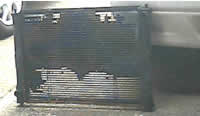
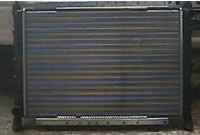
That’s because a radiator is a key part of a vehicle’s cooling system which circulates cool water in the engine for keeping the temperature low.
Clogged Exhaust
Another reason that can cause problems related to heating in a tuned engine is a clogged exhaust. As a result of this, the hot gases won’t be able to leave the vehicle.
This backfires such gases and causes overheating which is harmful to the engine.
Faulty Catalytic Converter
Another major reason why a tuned engine may run hot is due to a faulty catalytic converter.
Such a catalytic converter restricts the flow of exhaust gases from the engine which will cause a temperature rise.
Blown Head Gasket
The purpose of the head gasket is to seal the combustion chamber. However, it also plays a vital role in keeping the coolant away from the combustion chamber.
In case the head gasket is blown, it will lead to coolant leakage which will in turn heat the tuned engine.
Why Is Management Of Heat Vital For Tuned Engines?
Just like the stock engines, heat management is vital not just for getting high performance out of an engine but also for its longevity.
So, here are a few steps that can be performed to mitigate this issue.
Upgraded Radiator
As already discussed above, a tuned engine produces more power due to the higher combustion rate. However, the factory fitted radiator is not designed for such a system.
Resultantly, the need for an upgraded radiator becomes immense. So you are advised to upgrade the radiator to ensure smooth working of your vehicle.
Several manufacturers offer upgraded radiators, most of which are vehicle specific. However, you always have the option of choosing a universal radiator, which might not be able to deliver optimal results but costs much less.
Oil Cooler
Even after a proper cooling system has been installed in your vehicle, you can still face the issue of overheated engine oil.
A tuned engine is more prone to engine oil overheating, and because engine oil is one of the most important fluids in a vehicle, keeping it properly cooled is critical.
The need for an oil cooler becomes even more critical in areas where the temperature is already high because the turbocharger or supercharger of a tuned vehicle will raise the oil temperature even more.
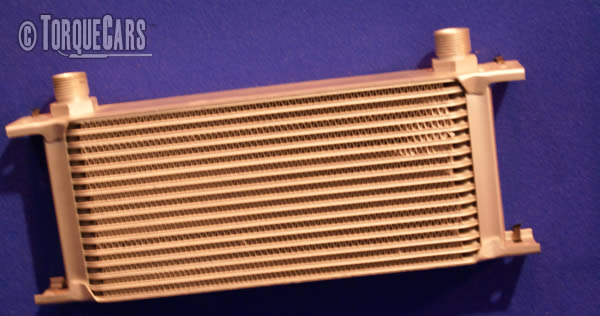
This is why an air cooler is regarded as a highly important part. An oil cooler performs the function of reducing the temperature of the engine oil.
Scathing hot oil can adversely affect the engine parts and also plays a key role in heating the engine.
Thus having a properly functional oil cooler is vital if you want to deal with the overheating issue in your vehicle with a tuned engine.
In other words, an oil cooler functions similarly to a radiator for engine oil. Oil flows through thin, air-cooled tubes. This brings the engine oil temperature down.
Upgraded Water Pump
The water pump is important in keeping the tuned engine cool. This is because the purpose of a water pump is to keep the fluid circulating in the engine to keep the temperature low.
The standard water pump installed in the vehicle is designed to meet the needs of the stock radiator. So, after you've upgraded your tuned vehicle's radiator, you'll need to upgrade the water pump as well.
It is small in size but can cost more than $300. However, we recommend going with the upgraded part because it can help significantly reduce overheating in your tuned engine.
A mechanical pump work according to engine speed, but in reality if the engine is cool you want a slower flow, and as the engine warms up you want to increase the speed of the water pump, which is not easily achievable on a mechanical water pump driven by engine pulleys.
Electric Water Pump
An electric water pump is extremely useful in dissipating heat from a tuned engine. This is primarily because such a pump uses centrifugal force to pressurise liquids before circulating them.
These cooler fluids take away the heat from a car’s engine and thereby prove quite effective in keeping vehicles, even with tuned engines, cool.
An electric water pump is an imperative part of a vehicle’s cooling system and thus we can’t emphasize enough the importance of this part.
It can be set to increase or reduce the flow rate according to the temperature, allowing the car to warm up more quickly and tolerate longer periods of extreme power delivery.
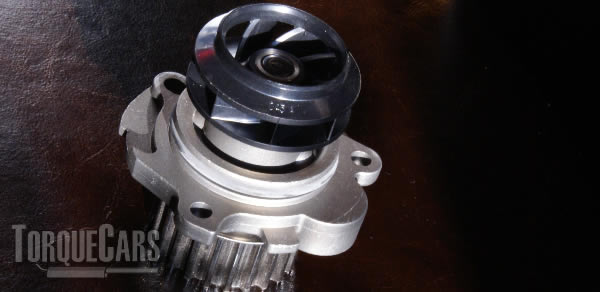
Additives To The Coolant
While water can keep your car from overheating, a coolant is the way to go if you want to get some serious performance out of your car.
That’s because the heated engine can boil water at its low boiling point of 100°C. This is why coolants are used in vehicles to control the temperature of the engines and at 8psi a coolant will lift the waters boiling point to around 120°C.
Bear in mind that water can be corrosive inside an engine, and it will freeze and expand which can crack the engine block, so additives are an essential part of your coolant.
Water also boils and because the heated engine can make water reach its low boiling point of 100°C easily you need to address this with the coolant additives used. This is why coolants are used in vehicles to control the temperature of the engines.
There are a wide array of coolant additives that are used in vehicles to prevent tuned engines from overheating.
Different radiators and engine blocks require different additives to work properly.
So, while one additive yields great results for an engine type, it may not work well for another. Most blends sold in stores are suitable for all types of engine, but read the label carefully. If you have a performance engine you might need to focus on specific types of additive to get the benefits from these.
Water
The essential base component, but be aware that in some hard water areas, the water will cause scale build up and will corrode the engine.
Although tap water can be used we strongly recommend you get a softened water.
Distilled water is often recommended but this is effectively missing an electron (de ionised) and this can cause faster corrosion inside the engine. Filtered water can be effective also if you can't source softened water.
Ethylene glycol
The primary component of most coolants acts as an antifreeze, it's presence will also raise the boiling point of the water but will slightly reduce it's ability to transfer heat.
For most applications we see a 50/50 mix of ethylene glycol and water used, but the following additives are also frequently added to the coolant.
Here are some of the additives that are added to the coolants. Bear in mind that coolants are blends of additives and that in some cases the drawbacks of some additives can be mitigated with other additions to the fluid.
Silicate
While it is not suitable for use with plastics, Silicate offers protection from corrosion. Be aware that Silicate is known to damage some gasket materials and seals so should be used carefully according to the components used in your engine.
Phosphate
Phosphate, just like silicate is effective against corrosion and is thus added to coolants. It can cause scale build up though and this is exacerbated in hard water areas.
Borate
It increases the boiling point of the coolant making it fit for use in high temperatures. Besides this, it prevents corrosion at high temperatures and reduces the point at which the coolant freezes. Older engines are likely to be damaged through corrosion.
Nitrite
Nitrite coats iron for preventing corrosion and thus also reduces cavitation (tiny bubbles). This does not go well with Aluminium if not addressed with supplementary additives.
Sodium Benzoate
Sodium Benzoate is particularly beneficial for Hybrid engines which tend to be smaller and operate with the Atikinson Cycle, but for much shorter periods of running time. However, it must not be used with Aluminum alloys and hard water otherwise the results won’t be favourable due to it's propensity to react and cause the alloys to corrode. It will make the coolant last longer and is superb at warding off corrosion in steel liners or iron engine blocks.
Exhaust Thermal Wrapping
An effective way of keeping your tuned engine cool is to use exhaust thermal wrapping.
While this is not a necessity, it still is a highly beneficial process which keeps the heat within the exhaust.
This means that lesser heat can find its way to other engine parts which in turn plays a vital role in keeping tuned engines from overheating.
The turbo typically emits quite a lot of heat, so it makes sense to wrap the hot part here so the heat flows through the exhaust pipe.
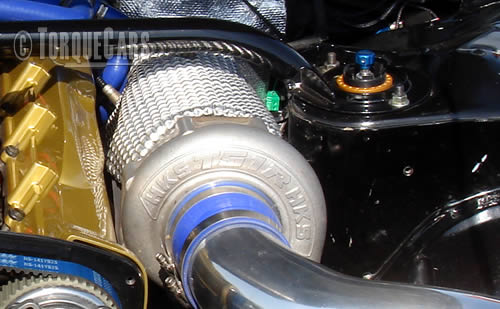
An additional benefit of exhaust thermal wrapping is that it adds to the cosmetic look of the exhaust.
When choosing an exhaust thermal wrapping, ensure to get a high-quality product which can easily withstand temperatures over 1000°C.
Various exhaust coatings are commercially available including ceramic coatings which help restrict the heat transfer and keep your engine bay cool.
Engine Bay Cooling
An engine bay is deigned to allow the air to flow through it, but in a tuned engine you might need to cut additional vents or place ducts the channel the higher engine bay temperatures away.
Hood vents are effective due to the negative pressure created over it, and this will effectively suck out the warm air, which will naturally flow in an upward direction.
Side vents can also be useful, but in most cars the double skin around the side and the suspension mounts can make this more challenging to fit.
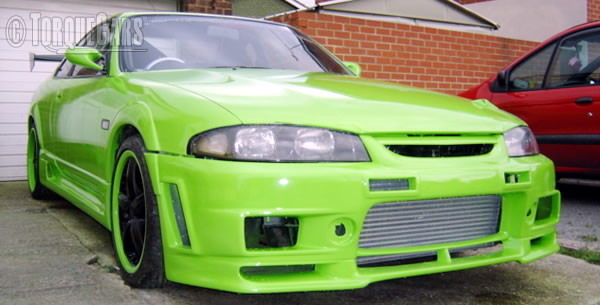
Choosing a front bumper which has plenty of space for air circulation can make a big difference to those under bonnet temperatures.
Changing Grades Of Engine Oil
According to some experts, oil plays a vital role (approximately 40%) in cooling an engine.
Besides this, oil lubricates the engines and thus reduces friction. This decreases the heat produced during the operation of the engine.
As the oil heats up, its thickness changes. Hotter oil is less viscous than colder oil and thus is more effective in moving around while spreading the heat.
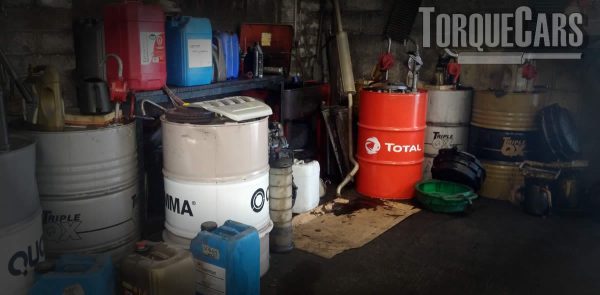
However, in case the oil becomes too thin, it won’t be able to effectively lubricate the engine.
But it can sheer, or peel away from the parts it protects leaving them exposed and generating additional friction. So there is a balancing act to be performed here and the oil should be chosen to match your usage of the car, and be suitable for your tuned engines requirements.
So, in short, this means that thinner oil will be able to pass through the tubes of an oil cooler quickly as compared to a thick oil. This will cool down the oil and thus the engine will also be cooled quickly.
The viscosity, or flow rate of the oil needs to be effective both in the cold and at your engine's operating temperatures.
So, while changing the grade of the engine oil, all the above-mentioned factors need to be kept in mind.
Please Check out my YouTube channel, we're regularly adding new content...
PLEASE HELP: I NEED YOUR DONATIONS TO COVER THE COSTS OF RUNNING THIS SITE AND KEEP IT RUNNING. I do not charge you to access this website and it saves most TorqueCars readers $100's each year - but we are NON PROFIT and not even covering our costs. To keep us running PLEASE Donate here
If you liked this page please share it with your friends, drop a link to it in your favourite forum or use the bookmarking options to save it to your social media profile.
Feedback - What do You Think?
Please use our forums if you wish to ask a tuning question, and please note we do not sell parts or services, we are just an online magazine.
Help us improve, leave a suggestion or tip
Please watch this video and subscribe to my YouTube channel.

 Click to accept YouTube Cookies & Play.
Click to accept YouTube Cookies & Play.